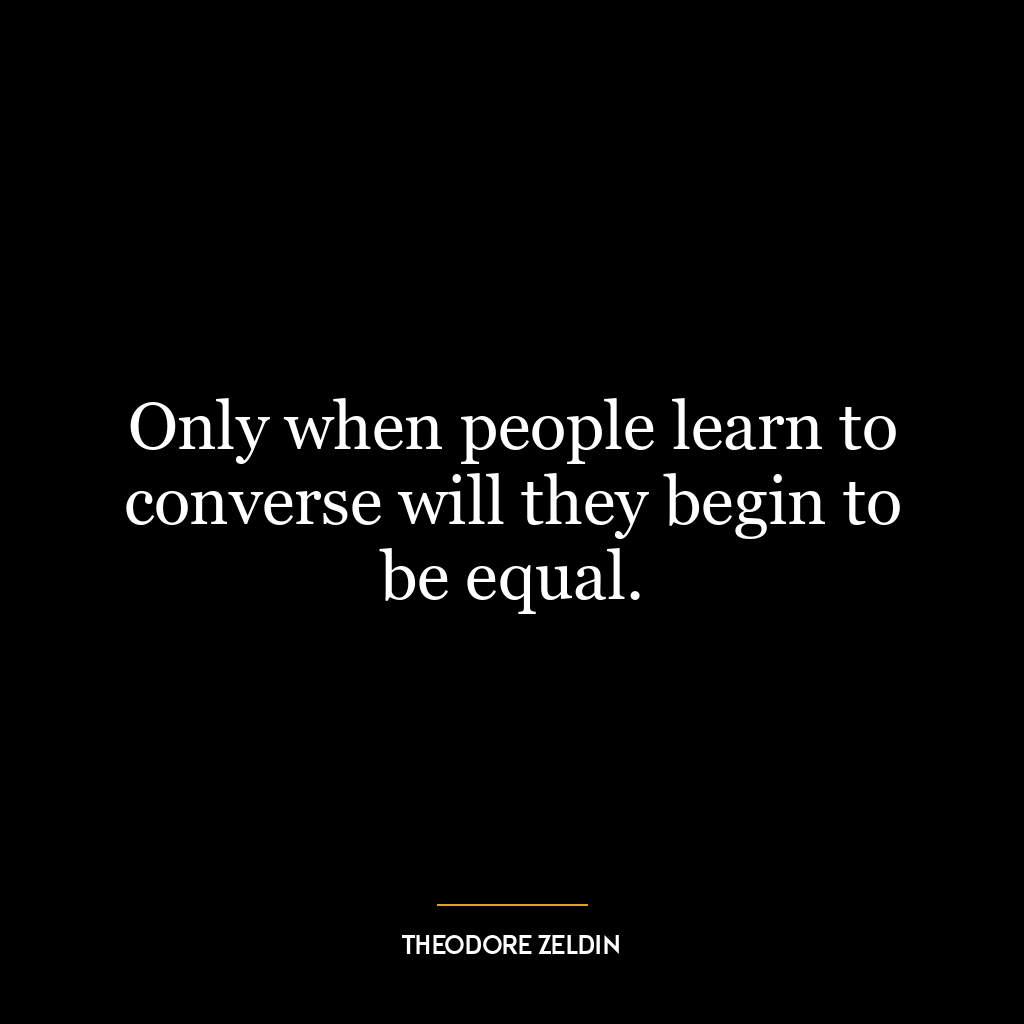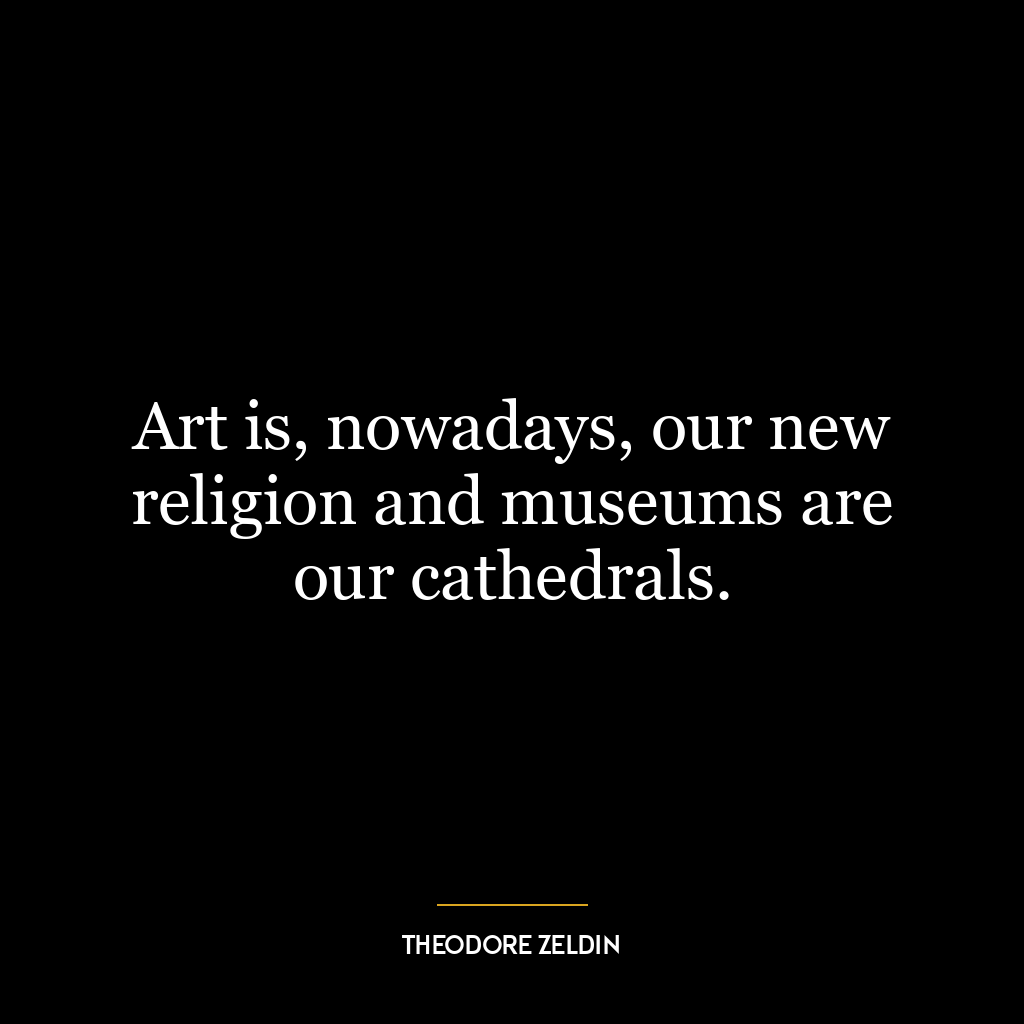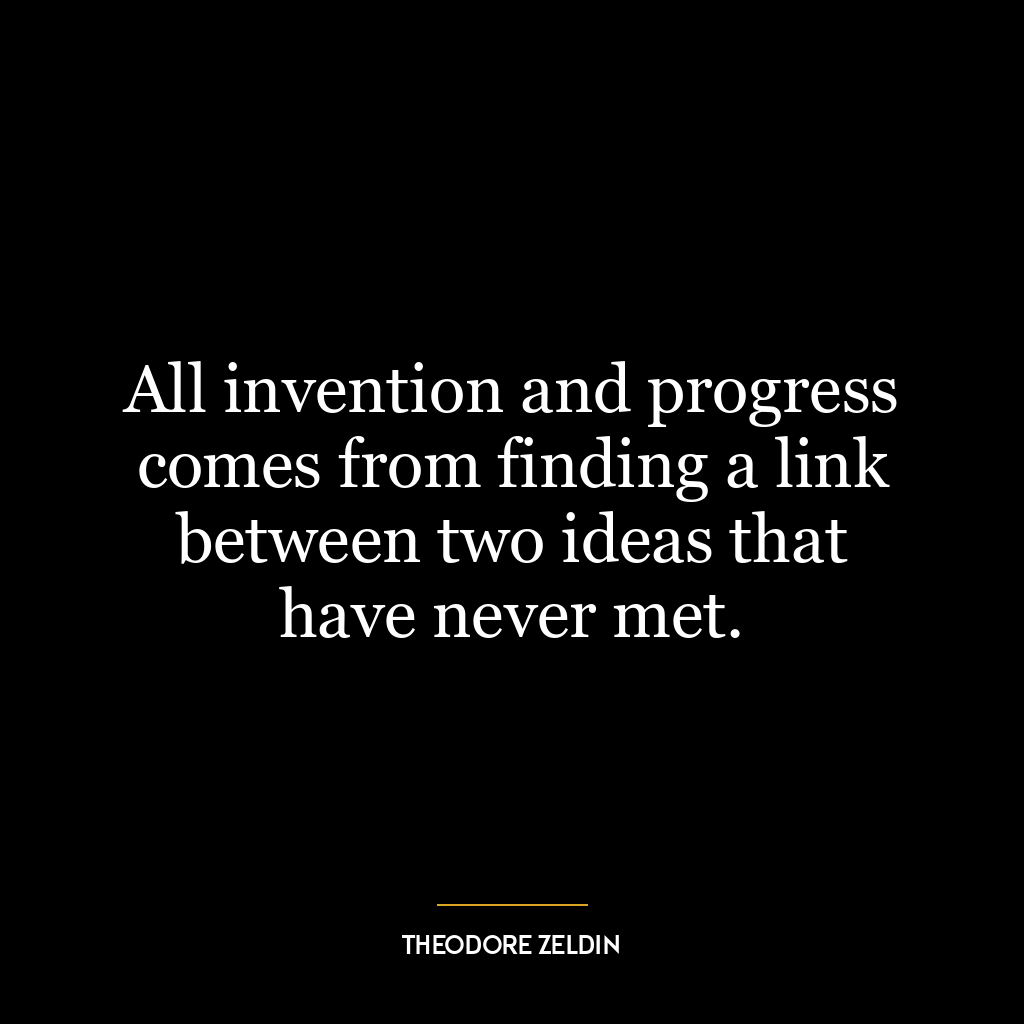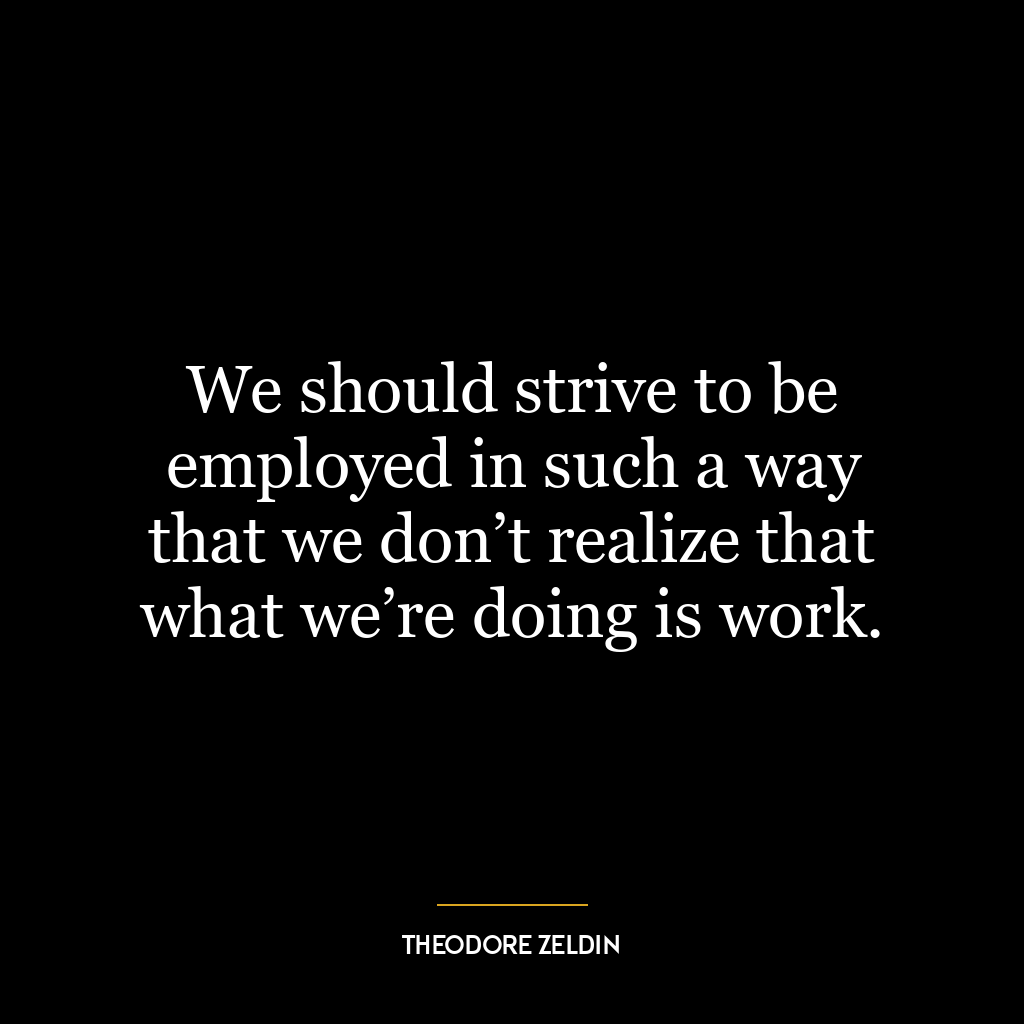Theodore Zeldin Quotes
- Historian
- United Kingdom
- 1923
Theodore Zeldin is a British historian, philosopher, and sociologist known for his groundbreaking work on the history of emotions and human relationships. He is a Fellow of St. Antony’s College, Oxford, and has been a professor at the University of Oxford since 1957. Zeldin is best known for h…Read More
Theodore Zeldin is a British historian, philosopher, and sociologist known for his groundbreaking work on the history of emotions and human relationships. He is a Fellow of St. Antony’s College, Oxford, and has been a professor at the University of Oxford since 1957. Zeldin is best known for his book “An Intimate History of Humanity,” which explores the evolution of human emotions and relationships throughout history. He has also written extensively on the topics of love, conversation, and the future of work. Zeldin’s work has been praised for its originality and thought-provoking insights into the human experience. He has received numerous awards and honors for his contributions to the field of social sciences.Read Less
Theodore Zeldin is a British historian, philosopher, and sociologist known for his groundbreaking work on the history of emotions and human relationships. He is a Fellow of St. Antony’s College, Oxford, and has been a professor at the University of Oxford since 1957. Zeldin is best known for his book “An Intimate History of Humanity,” which explores the evolution of human emotions and relationships throughout history. He has also written extensively on the topics of love, conversation, and the future of work. Zeldin’s work has been praised for its originality and thought-provoking insights into the human experience. He has received numerous awards and honors for his contributions to the field of social sciences.
9 Inspiring Theodore Zeldin Quotes
Theodore Zeldin Career Highlights
- Zeldin was born in 1933 in London, England. He studied at Oxford University, where he earned a Bachelor’s degree in History and a Doctorate in Philosophy.
- In 1957, Zeldin became a Fellow of St. Antony’s College, Oxford, and later served as the Dean of the College from 1977 to 1984.
- In 1980, he founded the Oxford Muse Foundation, a non-profit organization that aims to promote dialogue and understanding between people from different cultures and backgrounds.
- Zeldin has held numerous prestigious positions, including being a visiting professor at Harvard University, the University of California, and the Sorbonne in Paris.
- He has received several awards and honors for his work, including the Wolfson History Prize and the British Academy Medal.
Key Contributions by Theodore Zeldin
- Zeldin’s most significant contribution to the field of history is his exploration of the history of emotions and relationships. He believes that understanding the emotional and personal aspects of history is crucial to understanding the human experience.
- He has also made significant contributions to the study of conversation and its role in shaping society. Zeldin argues that conversation is a powerful tool for building connections and understanding between individuals and communities.
- Zeldin’s work has challenged traditional historical methods and has encouraged a more interdisciplinary approach to studying history. He has incorporated elements of psychology, sociology, and philosophy into his research, making his work unique and thought-provoking.
- Zeldin’s books, including “An Intimate History of Humanity” and “The Hidden Pleasures of Life,” have been translated into over 20 languages and have been widely praised for their insightful and engaging writing style.
What Sets Theodore Zeldin Apart
- Zeldin’s approach to history is what sets him apart from other historians. He believes that history should not just be about facts and events but should also focus on the emotional and personal aspects of human experience.
- He is known for his ability to bridge the gap between academic research and the general public. Zeldin’s writing is accessible and engaging, making complex historical concepts understandable to a wider audience.
- Zeldin’s work has also had a significant impact on society. Through his foundation, he has organized numerous events and projects that aim to bring people from different backgrounds together and promote understanding and empathy.
Takeaways
- Theodore Zeldin’s work has challenged traditional historical methods and has encouraged a more interdisciplinary approach to studying history.
- His exploration of the history of emotions and relationships has shed light on the personal and emotional aspects of human experience, making his work relatable and relevant.
- Zeldin’s belief in the power of conversation to build connections and understanding between individuals and communities is a valuable lesson for society.
- His writing style and ability to bridge the gap between academia and the general public make his work accessible and thought-provoking for a wider audience.















